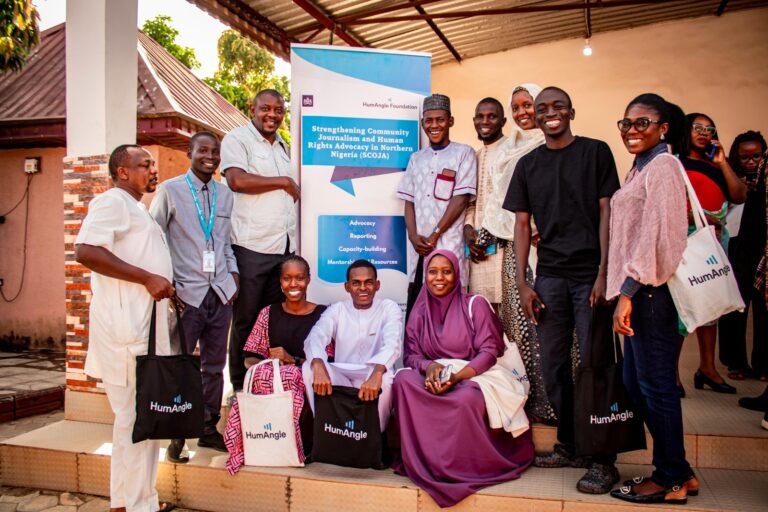By Aminu Adamu
HumAngle Foundation has launched a six-month fellowship programme to strengthen community journalism and promote human rights advocacy among journalists across northern Nigeria.
The initiative, which began with a three-day training session held simultaneously in Kaduna, Plateau, and Borno States, brings together reporters and advocates from the North Central, North East, and North West regions. Participants will continue with six months of mentored fieldwork to apply lessons from the training.
According to Johnston Kpilaaka, Sub-Editor and Head of Standards at HumAngle, the fellowship was introduced to respond to the erosion of responsible reporting and the spread of misinformation in conflict-prone areas.
“There is a failure of governance, but there is also a failure of narrative by media practitioners,” Mr Qpilaaka said. “Our goal is to help journalists reclaim that narrative through ethical storytelling.”
The programme focuses on equipping participants with practical knowledge in conflict mapping, accountability journalism, digital safety, countering disinformation, and solutions journalism.
One of the fellows, Vangawa Bolgen, described the training as a “refresher course” that reshaped her understanding of investigative and community reporting.
“After the fellowship, I plan to step down the knowledge in my newsroom and focus more on community journalism,” she said.
Another participant, Abdul Aziz, said the sessions on conflict sensitivity had changed his approach to covering violent incidents.
“I learnt how to report conflict in such a way that my reportage will not worsen any situation,” he said.
Similarly, Helen Odisi said the fellowship broadened her perspective on social and environmental accountability.
“It exposed me to climate change, accountability, and conflict reporting. I’m now equipped to apply these lessons in my newsroom,” she said.
HumAngle said the fellowship aims to rebuild public trust in journalism by encouraging evidence-based storytelling that promotes peace, empathy, and transparency.
Despite its early success, the organisers noted that sustainability will depend on continued mentorship, funding, and institutional support from media organisations. Fellows also highlighted challenges such as limited access to data, poor internet connectivity, and resource constraints in their newsrooms.
The foundation said it plans to expand the programme to reach more journalists through partnerships with media houses, universities, and civil society organisations.
“This fellowship is part of our long-term commitment to ethical and accountable journalism,” Mr Qpilaaka added. “We want journalists to see their work as a tool for peace and justice.”
